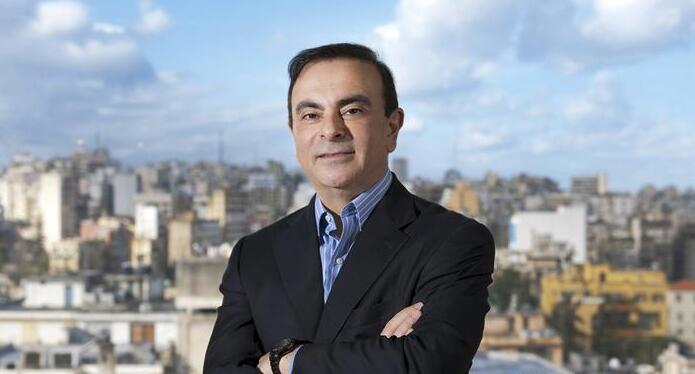Carlos Ghosn and Nissan
卡洛斯·戈恩與日產(chǎn)的恩怨糾葛
Car trouble
汽車紛爭
Collision Course. By Hans Greimel and William Sposato.
《陰謀始末》。作者漢斯·格雷梅爾和威廉·斯波薩托。
The main events of the scandal that brought down Carlos Ghosn, whose restless energy made other globetrotting bosses look work-shy, are appropriately book-ended by flights on corporate jets. The drama began with grainy television footage of Japanese prosecutors boarding the plane that delivered an unwitting Mr Ghosn to his arrest in Tokyo in November 2018. It culminated in his skipping bail on several charges of financial impropriety around a year later. Stripped of his leadership of a giant conglomerate, he was smuggled out of Japan on another private jet, this time hidden in a box.

導(dǎo)致卡洛斯·戈恩(Carlos Ghosn)下臺的主要丑聞事件起因于乘坐公務(wù)機。戈恩的充沛精力讓其他滿世界飛的老板們黯然失色。這場鬧劇的開場是一些模糊的電視畫面:2018年11月的東京,日本檢方登上一架飛機,突然將不知情的戈恩逮捕。大約一年后,他因幾項財務(wù)不當(dāng)指控而在保釋期間潛逃,由此這出鬧劇達到了高潮。在被剝奪一家大型企業(yè)集團的領(lǐng)導(dǎo)權(quán)后,他搭乘另一架私人飛機偷運出日本,這次是藏身于一個箱子里。
Because of that clandestine escape, “Collision Course” by Hans Greimel and William Sposato, two Tokyo-based journalists, at times reads like a spy thriller. But their main aim and achievement is to give the clearest account yet of the deep-rooted causes of Mr Ghosn’s predicament. Underpinning the entire tale—and Mr Ghosn’s status as a corporate superstar—was Renault’s rescue in 1999 of near-bankrupt Nissan, an alliance, later joined by Mitsubishi, which he built into the world’s biggest carmaker.
由于那次秘密逃亡,兩位駐東京記者漢斯·格雷梅爾和威廉·斯波薩托的《陰謀始末》有時讀起來像間諜驚悚小說。但他們的主要目標(biāo)和成就是對戈恩陷入困境的深層原因給出最清晰的解釋。1999年,雷諾拯救了瀕臨破產(chǎn)的日產(chǎn),后來三菱也加入了這個聯(lián)盟,戈恩將日產(chǎn)打造成了世界上最大的汽車制造商,這也鞏固了戈恩作為企業(yè)超級明星的地位。
The terms of Nissan’s bail-out gave Renault, in which the French government has a large shareholding, control of the Japanese firm, but Nissan got no say over Renault in return. The alliance stopped short of a full merger, which, in the car industry, had usually ended in disaster. This arrangement led to seething resentment at Nissan, which gradually became the bigger company and the main source of profits. Mr Ghosn kept a lid on the tensions between the two carmakers—their engineers rarely agreed on anything—through the force of his personality.
對日產(chǎn)的紓困條款給予雷諾(法國政府持有其大量股份)對這家日本公司的控制權(quán),但作為條件,日產(chǎn)對雷諾的相關(guān)問題沒有發(fā)言權(quán)。該聯(lián)盟尚未實現(xiàn)全面合并,而在汽車行業(yè),全面合并通常以災(zāi)難的結(jié)果告終。這一安排引發(fā)了日產(chǎn)的強烈不滿,該公司逐漸發(fā)展為規(guī)模更大的公司和主要的利潤來源。戈恩憑借他的個人性格壓制了兩家汽車制造商之間的緊張關(guān)系——兩家的工程師很少能就某一問題達成一致。
譯文由可可原創(chuàng),僅供學(xué)習(xí)交流使用,未經(jīng)許可請勿轉(zhuǎn)載。











